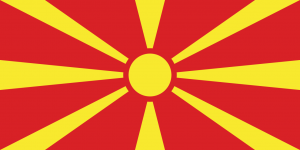Difference between revisions of "Language/Macedonian/Grammar/Adjectives"
m (Quick edit) |
m (Quick edit) |
||
| Line 59: | Line 59: | ||
<hr>If you have any questions, please ask them in the comments section below.<br>Feel free to edit this wiki page if you think it can be improved. 😎 | <hr>If you have any questions, please ask them in the comments section below.<br>Feel free to edit this wiki page if you think it can be improved. 😎 | ||
==Related Lessons== | |||
* [[Language/Macedonian/Grammar/Negation|Negation]] | |||
* [[Language/Macedonian/Grammar/Feminine|Feminine]] | |||
* [[Language/Macedonian/Grammar/Questions|Questions]] | |||
* [[Language/Macedonian/Grammar/Plurals|Plurals]] | |||
* [[Language/Macedonian/Grammar/Articles|Articles]] | |||
* [[Language/Macedonian/Grammar/Conditional-Mood|Conditional Mood]] | |||
* [[Language/Macedonian/Grammar/Future-Tense|Future Tense]] | |||
* [[Language/Macedonian/Grammar/Pronouns|Pronouns]] | |||
* [[Language/Macedonian/Grammar/Gender|Gender]] | |||
{{Macedonian-Page-Bottom}} | {{Macedonian-Page-Bottom}} | ||
Revision as of 23:07, 25 February 2023
Hi Macedonian learners! 😊
In today's lesson, we will be discussing adjectives in the Macedonian language. Adjectives are words that describe or modify nouns and pronouns. They can be used to give more information about a person, place, thing, or idea.
Adjective Formation
Adjectives in Macedonian are formed by adding suffixes to the root of the word. The suffixes depend on the gender, number, and case of the noun they are modifying.
Masculine
For masculine nouns, the suffixes are: -ио/-ео (singular) and -и/-е (plural).
For example:
- добар (good) → добрио (good, singular) and добри (good, plural)
- мал (small) → малио (small, singular) and мали (small, plural)
Feminine
For feminine nouns, the suffixes are: -а (singular) and -и (plural).
For example:
- добра (good) → добра (good, singular) and добри (good, plural)
- мала (small) → мала (small, singular) and мали (small, plural)
Neuter
For neuter nouns, the suffixes are: -о (singular) and -а (plural).
For example:
- добро (good) → добро (good, singular) and добра (good, plural)
- мало (small) → мало (small, singular) and мала (small, plural)
Adjective Agreement
Adjectives must agree with the nouns they modify in gender, number, and case. This means that the adjective must have the same gender, number, and case as the noun it is modifying.
For example:
- Добриот дете (the good child)
- Добрите деца (the good children)
- Добрата книга (the good book)
- Добрите книги (the good books)
Adjective Position
Adjectives usually come after the noun they modify. However, there are some exceptions. For example, when the adjective is used as a predicate, it comes before the noun.
For example:
- Детето е добро (the child is good)
- Книгата е добра (the book is good)
If you have any questions, please ask them in the comments section below.
Feel free to edit this wiki page if you think it can be improved. 😎
Related Lessons
